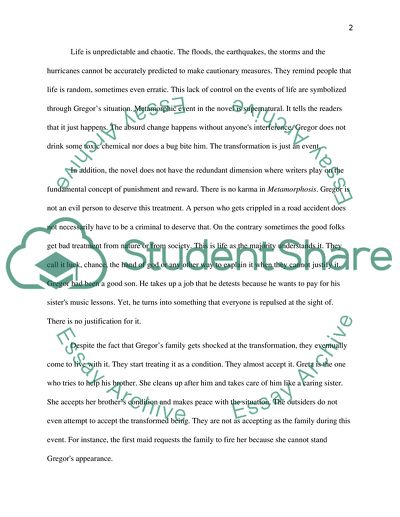Cite this document
(“Franz Kafka: Metamorphosis Book Report/Review Example | Topics and Well Written Essays - 2000 words”, n.d.)
Franz Kafka: Metamorphosis Book Report/Review Example | Topics and Well Written Essays - 2000 words. Retrieved from https://studentshare.org/literature/1872939-assignment-2
Franz Kafka: Metamorphosis Book Report/Review Example | Topics and Well Written Essays - 2000 words. Retrieved from https://studentshare.org/literature/1872939-assignment-2
(Franz Kafka: Metamorphosis Book Report/Review Example | Topics and Well Written Essays - 2000 Words)
Franz Kafka: Metamorphosis Book Report/Review Example | Topics and Well Written Essays - 2000 Words. https://studentshare.org/literature/1872939-assignment-2.
Franz Kafka: Metamorphosis Book Report/Review Example | Topics and Well Written Essays - 2000 Words. https://studentshare.org/literature/1872939-assignment-2.
“Franz Kafka: Metamorphosis Book Report/Review Example | Topics and Well Written Essays - 2000 Words”, n.d. https://studentshare.org/literature/1872939-assignment-2.


